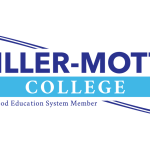Surgical Technologists, also called operating room technicians, bring a unique blend of sterilization protocol and operation procedures to operating rooms. Whether assisting during operations or preparing a sterile workspace, Surgical Technologists are vital to patient safety before, during, and after operations. Pursuing a career as a Surgical technologist is a great way to contribute to the healthcare field. Training to become a Surgical Technologist is a great way to quickly transition into and contribute to the healthcare industry.
What is a Surgical Technologist?
A Surgical Technologist, sometimes called a Scrub Tech or Surg Tech, works closely with surgeons and other members of a surgical team before, during, and after an operation. To help each operation run smoothly, Surgical Technologists prepare the appropriate supplies, medications, and instruments prior to surgery. The surgical technologist duties include preparing the appropriate supplies, medications, and instruments prior to surgery, and ensuring a sterile environment. They’re experts in sterilization and aseptic techniques, who strive to minimize the risk of infection for patients during surgery.
Scrub Techs are typically responsible for:
- Sterilizing patients for surgery
- Transporting patients to the operating room
- Preparing and sterilizing medical instruments for surgery
- Handing Surgeons the appropriate tools during surgery
- Counting supplies to ensure no foreign objects are left in the patient after surgery
- Disinfecting areas for incision and more
What Does a Surgical Tech Do?
While the specific tasks a Scrub Tech performs can vary based on where they work, there are some commonalities across each position.
Scrub Techs prepare operating rooms by setting up the appropriate surgical equipment and ensuring it’s working properly prior to surgery. They ensure the operating room is well-stocked with supplies, so the Surgeon has everything they need throughout the operation. Once they bring patients into the operating room, they disinfect incision sites and cover the patient with sterile drapes.
During an operation, they stand alongside Surgeons to serve as a second pair of hands. They hand Surgeons the appropriate tools throughout an operation and hold surgical instruments or internal structures in place during an operation.
Once a Surgeon has completed their task, Surgical Techs may dress or bandage a patient’s wound. They count surgical instruments after an operation to ensure no foreign bodies are left in the patient and clean and restock the operating room after each surgical procedure. While they may also escort patients to designated recovery areas, they don’t treat patients during recovery.
Where Can Surgical Techs Work?
69% of Surgical Technologists are employed at state, local, and private hospitals. They can also find work in physician’s offices and outpatient care centers. They can support surgeons with both major and minor surgical procedures in a wide range of medical specialties, including orthopedic surgery.
A Surg Tech’s work hours can vary depending on where they choose to work. Those working in physician’s offices may work eight-hour shifts throughout the week. Those working in a hospital may work longer shifts as well as on weekends and holidays. They may also be on call during nights or weekends.
Skills and Qualities Required To Become a Surgical Technologist
To excel as a surgical technologist, a blend of technical skills and personal attributes is essential. Here are some key skills and qualities that can help you succeed in this demanding yet rewarding field:
- Strong Attention to Detail: Surgical technologists must maintain a high level of focus during lengthy procedures to ensure everything runs smoothly.
- Excellent Communication and Teamwork: Working effectively with surgeons, nurses, and other medical professionals is crucial for a successful operation.
- Critical Thinking: Anticipating the needs of the surgeon and the patient requires sharp critical thinking skills.
- Knowledge of Surgical Instruments and Medical Terminology: A thorough understanding of surgical instruments, anatomy, and medical terminology is fundamental.
- Calm Under Pressure: The ability to stay composed and perform well under pressure is vital, especially during unexpected complications.
- Physical Stamina: Standing for long periods and handling heavy equipment demands good physical endurance.
- Adaptability: Quick adaptation to changing situations in the operating room is necessary.
- Problem-solving Skills: Troubleshooting equipment and resolving issues during procedures are part of the job.
These skills and qualities not only help in performing the technical aspects of the job but also in ensuring patient safety and the smooth operation of the surgical team.
The Role of Surgical Technologists in the Healthcare Team
Surgical technologists are indispensable members of the healthcare team, working closely with surgeons, nurses, and other medical professionals to ensure successful surgical procedures. Their responsibilities are diverse and critical to the operation’s success:
- Preparing the Operating Room: Before a procedure, surgical technologists set up the operating room, ensuring all equipment is ready and functioning properly.
- Maintaining Sterility: They are responsible for maintaining a sterile environment, ensuring all surgical instruments and equipment are properly sterilized.
- Assisting During Surgery: During the procedure, they pass surgical instruments to the surgeon and perform other tasks to assist, such as holding instruments or internal structures in place.
- Conducting Counts: After each layer of closure, they conduct a count of sponges, needles, and other materials to ensure nothing is left inside the patient.
- Post-Operation Duties: They apply bandages to the patient and assist in removing them from the operating room.
- Cleaning the OR: After surgery, they help clean the operating room, working alongside housekeeping staff and nurses to prepare for the next procedure.
By performing these tasks, surgical technologists ensure that operations run smoothly and safely, contributing significantly to patient care and the overall efficiency of the surgical team.
How Can You Become a Surg Tech?
Those interested in becoming a Surg Tech should first earn a high school diploma or its equivalent. After high school, they can begin training by completing an accredited Surgical Technology program at a postsecondary institution. While other institutions may award a certificate upon program completion, Miller-Motte College awards an Associate of Applied Science degree to graduates of our Surgical Technology program. Pursuing a surgical technologist career can be a rewarding path for those interested in the healthcare field.
Some Surgical Technologists choose to earn their certification by taking the Certified Surgical Technologist (CST) exam*.
These postsecondary Surgical Technology programs are designed to help students learn anatomy, the disease process, the basics of safety care, sterilization techniques, infection control, and more. Students can practice their new skills and reinforce their understanding in hands-on simulation labs and clinical rotations. Under the guidance of industry-experienced instructors and professionals, they can gain confidence in their abilities and be better prepared for entry-level positions after graduation.
Once they find work, Scrub Techs may be able to continue training on the job.
Do Surgical Techs Have to Be Certified?
Whether or not a Scrub Tech needs to be certified prior to working in the field depends on their state. In Tennessee, working Surgical Technologists must hold) national certification from the National Board of Surgical Technology and Surgical Assisting (NBSTSA) by passing the CST exam.
Although earning certification isn’t mandatory in all states, doing so can speak to a Surgical Technologist’s expertise. This can improve a Scrub Tech’s employability and help improve their career opportunities. Some surgical technologists may choose to advance their careers by becoming surgical assistants, which involves more direct responsibilities during surgical procedures.
Surgical Technology Program Accreditation and Certification
Accreditation and certification are crucial components of a surgical technologist’s education and career. Surgical technology programs are accredited by reputable organizations such as the Commission on Accreditation of Allied Health Education Programs (CAAHEP) or the Accrediting Bureau of Health Education Schools (ABHES). These programs combine classroom instruction with clinical training in hospital or surgical settings, providing a comprehensive education.
Certification, while not mandatory in all states, is often preferred by employers and can enhance career prospects. The National Board of Surgical Technology and Surgical Assisting (NBSTSA) offers the Certified Surgical Technologist (CST) credential. To earn this certification, candidates must pass a written exam and meet specific education and experience requirements.
Accredited programs and certification ensure that surgical technologists are well-prepared and qualified to perform their duties, ultimately contributing to higher standards of patient care and safety in the operating room.
How Long Does It Take to Become a Surgical Tech?
How long it takes to become a surgical technician depends on a variety of factors such as:
- Being a full- or part-time student
- Surgical Technology program length and award type
- Undergoing additional training for things like CPR or basic life support
Although most associate level Surgical Technology programs may be completed in less than two years, a part-time student may take longer to finish this program than a full-time student. Since most Surgical Technologist positions prefer employees certified in some form of basic life support, some surgical technicians may choose to earn these certifications independent of their programs.
What Is the Job Outlook for Surgical Technologists?
The Bureau of Labor Statistics projects six percent growth between 2023 to 2033 for Surgical Technologists, which is above average for all occupations. If these projections hold true, there should be 8,700 openings for surgical assistants and technologists each year, on average, over the next eight years. This growth is driven by factors such as surgical advancements and increased demand for surgeries among the expanding population of older adults.
Start Training To Become a Surgical Technologist at Miller-Motte
Working alongside Surgeons and other surgical team members to ensure patient safety can bring personal and professional fulfillment. Before that can happen, it’s important to lay a strong foundation with an interactive program.
The Miller-Motte College Surgical Technology Associate Degree program at the Chattanooga campus is accredited by the Commission on Accreditation of Allied Health Education Programs (www.caahep.org(Open Link in new window)) upon the recommendation of the Accreditation Review Council on Education in Surgical Technology and Surgical Assisting (ARC/STSA). With our hands-on training and industry-experienced instructor led courses, we can help prepare our students for entry-level careers upon graduation. Our program also includes training on the use of advanced robotic surgical equipment, preparing students for the latest developments in surgical technology.
Have questions about our Surgical Technology program that weren’t answered in our post? Give us a call at (800) 705-9182 or submit this form to request more information.
Information within this blog is for general information purposes only. Miller-Motte does not assume or guarantee certification/licensures, specific job/career positions, income earning potential or salary expectations based on the programs offered at Miller-Motte. Career and program information statements in this blog do not guarantee that programs or other information mentioned are offered at Miller-Motte.




